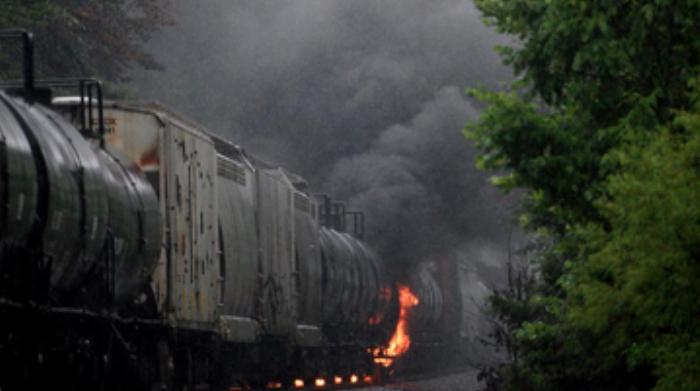Keeping the Job on Track When Disaster Strikes
 Fourth of July weekend is a common time for aluminum manufacturers to perform routine maintenance. Many have very tight maintenance schedules during these two or three days of downtime. It’s one of our busiest times of the year.
Fourth of July weekend is a common time for aluminum manufacturers to perform routine maintenance. Many have very tight maintenance schedules during these two or three days of downtime. It’s one of our busiest times of the year.
But not even the best-laid plans can protect you from catastrophe. And that’s exactly what happened to us this past July 4th weekend while on a job for a customer.
Evacuation in the Middle of the Night
A freight train carrying a highly flammable and toxic substance derailed and caught fire around 2 a.m. on Thursday, July 2 near our customer’s facility.
The train was carrying acrylonitrile. Exposure in high levels, particularly when inhaled, can cause anemia, headaches, jaundice, kidney problems and nausea. Bad stuff! Ten first responders were taken to the hospital after breathing in the fumes from the blaze.
When the accident occurred, we were in the middle of a refractory pour at the facility less than three miles from the accident. It was the middle of the night, in the middle of a rainstorm — and we had a mixer full of material — when the police showed up and told everyone to “leave right now.”
It was a mandatory evacuation. Within hours, over 5,000 local residents were evacuated and 87 people were treated for exposure to toxic fumes. It was one of those things that you simply can’t control, but can only react. Fortunately, none of our crew was affected.
Needless to say, it was a bit chaotic. We had started the job on Wednesday and were evacuated about 2 a.m. Thursday morning.
Contingency Plans
In addition to losing almost two days of production time, we had material loss: refractory was being mixed at the time of evacuation, and some had to be torn out and replaced. Our team worked with our manufacturers to get replacement materials ready for delivery… whenever the EPA would allow us back on site.
While we didn’t have a standard operating procedure for a forced evacuation in the middle of a refractory installation job, we quickly developed one and stayed in constant communication with our customer. As a result, we were the first vendor back on site Friday afternoon. We were escorted through a police blockade only 36 hours after the derailment – before many of the customer’s employees – to begin assessing the damage caused by the evacuation and getting the job back on track.
Mission Accomplished
The job turned out well, and our customer was pleased. We were proud of our team as well, who went far beyond what might be expected in this situation. They could have easily sat back and relaxed and enjoyed the unexpected time off on the holiday week, awaiting word for when things would be back to normal.
But instead, they pressed on with our manufacturers, the EPA and the customer’s team. Here’s a shout-out to the Knoxville office!
It’s almost impossible to plan for disasters like these. Things simply happen that are outside of our control. But the takeaway is that when something like this occurs, we stay flexible and keep our sense of urgency to get the job done – even during a disaster in the middle of the night on a holiday weekend.
Our goal is to leave the customer’s plant better than we found it!
Comments are closed.

